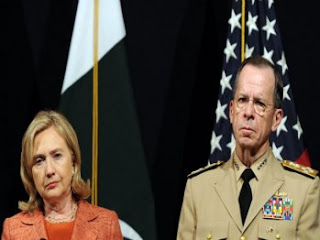After coming under fire for several days, former Pakistan speedster Shoaib Akhtar shot back at critics in India and beyond, saying he could not be forced into praising India’s batting legend Sachin Tendulkar.
“I have my personal favourites which include Viv Richard, Brian Lara and Imran Khan and I can take nothing away from the greatness of Sachin Tendulkar. But you can’t put a gun to my head and force me to like him. For me, Viv Richards remains the greatest batsman and he won more matches for West Indies. This is my opinion and I stand by it,” Akhtar said in an interview with an Indian news channel as the storm created by the launch of his autobiography “Controversially Yours” continued.
He also tore into former Pakistan and Indian players saying they were towing the lines of their employers in criticizing him “for a few bucks.”
“I am sick of clarifying my statements about Tendulkar. I never said he was a coward or scared of me. If these people had put in the effort of reading my book, they would realize I was talking about a specific day and a specific test played in Pakistan. He was struggling with a tennis elbow and our strategy was to target him with short balls. He got struck a couple of times and on the head in Karachi and walked away from me. I felt he was uncomfortable and scared at that moment. That is what I felt and I’ll stick to it. Tendulkar and Rahul Dravid when they played against me did not win, so to me they were not match-winners. Don’t buy my book, borrow it from someone and read what I have said, they are facts and incidents,” he said.
Shifting his focus to Pakistan cricket and specifically Wasim Akram and Ijaz Butt he claimed the duo needed to look at their character before making statements.
“Wasim Akram…there can only be one. But he needs to look at his own past. He was fined by a court for his involvement in match-fixing and even had a player’s revolt against him. He was abusive and had a bad attitude. What position is he in to say anything to me? For me even if a person’s name comes up in something slightly related to fixing, I lose respect. Shoaib Malik’s name came up too and I don’t respect him anymore.”
“I have my personal favourites which include Viv Richard, Brian Lara and Imran Khan and I can take nothing away from the greatness of Sachin Tendulkar. But you can’t put a gun to my head and force me to like him. For me, Viv Richards remains the greatest batsman and he won more matches for West Indies. This is my opinion and I stand by it,” Akhtar said in an interview with an Indian news channel as the storm created by the launch of his autobiography “Controversially Yours” continued.
He also tore into former Pakistan and Indian players saying they were towing the lines of their employers in criticizing him “for a few bucks.”
“I am sick of clarifying my statements about Tendulkar. I never said he was a coward or scared of me. If these people had put in the effort of reading my book, they would realize I was talking about a specific day and a specific test played in Pakistan. He was struggling with a tennis elbow and our strategy was to target him with short balls. He got struck a couple of times and on the head in Karachi and walked away from me. I felt he was uncomfortable and scared at that moment. That is what I felt and I’ll stick to it. Tendulkar and Rahul Dravid when they played against me did not win, so to me they were not match-winners. Don’t buy my book, borrow it from someone and read what I have said, they are facts and incidents,” he said.
Shifting his focus to Pakistan cricket and specifically Wasim Akram and Ijaz Butt he claimed the duo needed to look at their character before making statements.
“Wasim Akram…there can only be one. But he needs to look at his own past. He was fined by a court for his involvement in match-fixing and even had a player’s revolt against him. He was abusive and had a bad attitude. What position is he in to say anything to me? For me even if a person’s name comes up in something slightly related to fixing, I lose respect. Shoaib Malik’s name came up too and I don’t respect him anymore.”
Pakistan Cricket Board Chairman (PCB), Ijaz Butt, who had recently called Akhtar a madcap and termed his statements as “bullshit”, also copped some flak.
“A person who responded to the match-fixing allegations against Pakistan by accusing the English players of match-fixing cannot be taken seriously. He is old and I don’t think a person of his caliber should be acting like the way he does.”
Akhtar also responded to suggestions that he was breaking the “unspoken code” between teammates by saying his book was his frank opinion and that it was meant to be a learning experience for future Pakistan cricketers and even the management.
To a conclusive question about what India needed to do to be a better fast-bowling unit he said, “The attitude is missing. When they run in they must strike fear in the hearts of batsmen.”
“Whether I was unfit, had back niggles or was limping, I ran in gave everything.
“Additionally, India needs to get on the road, get a group of about 50 fast bowlers and put them in the fast bowling academy.”





